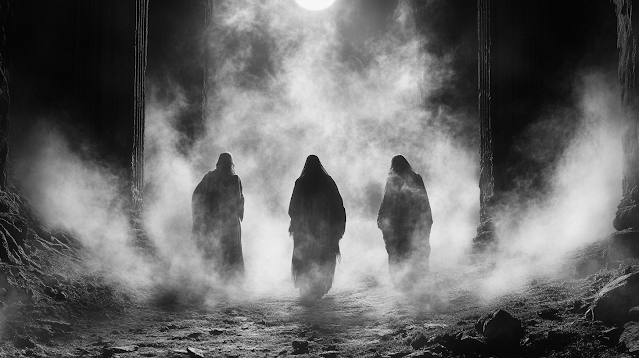Why Are Astrologers Always Talking About “Enemies” in the 12th House?
If you’ve ever had a chart reading and someone pointed at your 12th house and said, “That means you have enemies,” you might’ve left the conversation feeling anxious or misunderstood. It’s a line that shows up a lot in traditional astrology circles—and while it’s not baseless, it is often oversimplified or taken out of context.
So let’s take a step back. What does the 12th house actually represent? And why do astrologers keep bringing up this idea of enemies?
The 12th House Is Not the Enemy—It’s What You Don’t See
In classical astrology, the 12th house is referred to as the place of the Bad Daimon (kakos daimon). That title has led to a lot of spooky interpretations, but in practice, it’s much more about visibility and relationship to the Ascendant than about anything inherently ominous.
The 12th house is in aversion to the 1st—it doesn't make any of the major classical aspects (sextile, square, trine, or opposition) to the Ascendant, which represents the self, embodiment, and agency. So the 12th becomes a place that doesn’t “see” the self—and often, the self doesn’t fully see what’s going on there either.
That’s why the 12th is associated with things that operate outside of conscious awareness: isolation, retreat, the subconscious, institutions, confinement, and yes, sometimes hidden opposition. But that last one—"enemies"—needs to be understood in context.
What Do Astrologers Mean by “Enemies,” Anyway?
The idea of “enemies” in the 12th house isn’t about someone plotting against you with a secret vendetta. It’s a symbolic shorthand for things that work against your interests without your awareness—whether they’re internal patterns or external dynamics you haven’t yet noticed.
It can also reflect social or systemic structures that obscure your agency. Think of it less like someone out to get you and more like the kind of inertia or confusion that makes you misplace your priorities or trust the wrong sources.
Sometimes, other people are involved—but again, it’s not about them being “evil.” It’s about certain relationships or dynamics playing out in the background, outside your field of vision.
Malefics and Benefics: Not “Good” or “Bad” for You
This is where the traditional language of malefic and benefic planets enters the picture. Saturn and Mars have historically been called malefic, while Venus and Jupiter are called benefic. But these terms are often misunderstood as moral judgments or personalized afflictions.
In truth, malefic and benefic designations describe how a planet tends to operate in physical and social reality—not whether it “likes you.”
- Malefics tend to represent boundaries, challenges, severing, effort, and resistance. These qualities are necessary in life—but when they happen in ways we don’t control or understand, they can be hard to integrate.
- Benefics tend to support cohesion, ease, connection, and fertility. But even these can become problematic when unchecked.
In the 12th house, malefic planets may manifest as struggles we can’t fully name yet, or effort spent in isolation. Benefic planets might show quiet sources of help, or joys and talents we don’t feel ready to share.
Understanding this isn’t about labeling your chart as “bad” or “difficult.” It’s about seeing what kinds of experiences happen outside your spotlight, and how those planets might function differently depending on how they’re configured.
Dignity, Context, and the Bigger Picture
A planet’s role in your chart—whether it’s in the 12th or anywhere else—is never about one keyword or one interpretation. Dignity (a planet’s strength or compatibility with the sign it's in), sect (day/night chart), rulership, and aspects all shift how that energy operates.
- A planet in the 12th might feel hidden—but if it’s strong by dignity, it may work well behind the scenes, or support you in subtle but powerful ways.
- If it’s the ruler of your Ascendant, it can describe your own capacity to navigate solitude, dream work, or institutions.
- If it's connecting by aspect to planets in angular houses, it may still exert strong influence in your life—even from the shadows.
None of this is inherently negative. It just describes a location and mode of action. The 12th is a place of preparation, withdrawal, and background process—not a punishment zone.
The Real Point: Awareness, Not Alarm
Rather than framing 12th house placements as signs of sabotage or doom, it’s more helpful to ask: What is happening in your life that feels distant, private, or unconscious? Are there parts of yourself you only access when alone? Are there influences on your life you’ve accepted without fully seeing?
That’s the terrain of the 12th.
Yes, challenges can live here—but so can disciplines that require solitude, care that happens without recognition, and gifts that grow without applause.
Want to Explore Further?
Or check out my YouTube channel for ongoing conversations about house meanings and planetary placements:
🎥 https://www.youtube.com/@astrologybyryan



Comments
Post a Comment